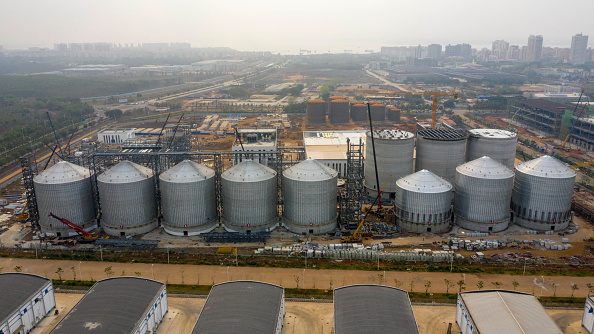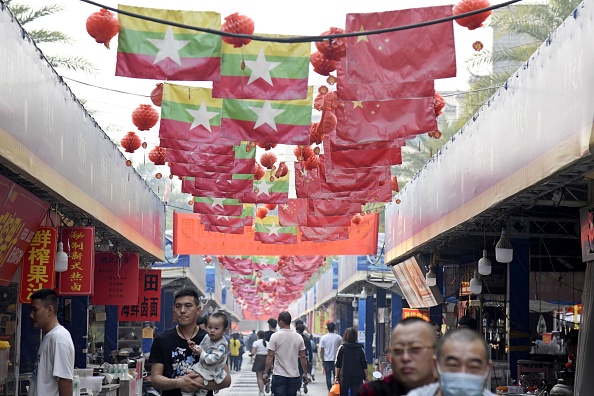
 Technological Frontiers
Technological FrontiersIn a bid to address U.S.-China tech competition, the U.S. Senate Commerce Committee announced it will hold a hearing next week on bipartisan legislation for advancing domestic research and development projects at home. The "Endless Frontier Act" led by Senate Democratic Leader Chuck Schumer and Republican Senator Todd Young is "designed to bolster American competitiveness and counter the growing economic threats we face across the globe, especially from the Chinese Communist Party," according to Sen. Schumer.
The Biden administration also blacklisted seven Chinese companies accused of developing supercomputers that help China's military to develop weapons of mass destruction. The blacklist will prevent American companies from exporting technology to the groups without proper approval. U.S. Commerce Secretary Gina Raimondo said the Biden administration would use "the full extent of its authorities to prevent China from leveraging U.S. technologies to support these destabilizing military modernization efforts." In response, China's Foreign Ministry spokesman Zhao Lijian said, "U.S. containment and suppression cannot hold back the march of China's scientific and technological development."
 Inflated Recovery
Inflated RecoveryThe economic fallout from COVID-19 may be stabilizing, but experts worry that global inflation could be on the rise. China's National Bureau of Statistics reported this week that the producer price index increased by over 4% compared to the same time last year, hitting above the 3.6% median estimated by economists. The prices of oil, copper, agricultural products and other commodities have risen after months of deflation. While commodity prices increased, consumer prices increased by .04%, after declining for the last two months. "Industrial firms stand to gain from higher factor-gate prices," according to Bloomberg economist David Qu, but the surging prices may threaten both China's economy and global markets. In a statement, China's Financial Stability and Development Committee urged officials to "keep a close eye on commodities prices."
But while producer prices increase, concerns mount over the future of China's factories, which face an unprecedented shortage of workers. Fewer Chinese workers are willing to do factory jobs, and the shortage of workers is only being compounded by China's shrinking population. Many of China's factories have turned to automated production and assembly to mitigate this, which may also have the added effect of keeping production costs down. Read more in What China Should Do to Curb Rising Production Costs, from Joel Gallo and Cameron Johnson.
 Uneasy Neighbors
Uneasy NeighborsThousands of Chinese troops were drafted to the Chinese city of Ruili this week to patrol the main border between China and Myanmar. Ruili, a small city in Yunnan province, has seen an increase in unauthorized border crossings since the February coup. Coronavirus cases have also increased, with 131 new cases reported in the city on Friday. Ruili's top party chief Gong Yunzun was dismissed from his position over a "serious dereliction of duty" in failing to stem COVID-19 outbreaks.
In public, China has devoted little attention to the coup in Myanmar aside from comments made to ASEAN leaders earlier this month that mediation should not include "[meddling] in Myanmar's internal affairs." In contrast, the U.S. and many other western nations have condemned the violence in the Southeast Asian nation. The Biden administration imposed sanctions on Myanmar's largest government-owned gem firm, according to a Treasury Department statement, penalizing Myanmar's largest and most lucrative industry. Read more in Turning A New Leaf in U.S.-China Relations? – Look No Further than Myanmar, from Brian Wong, DPhil in Politics candidate and Rhodes Scholar at Balliol College, Oxford.
Prepared by China-US Focus editorial teams in Hong Kong and New York, this weekly newsletter offers you snap shots of latest trends and developments emerging from China every week, while adding a dose of historical perspective.
- 2021-04-02 Back to Basics
- 2021-03-26 The Biden Era
- 2021-03-19 “A Strong Smell of Gunpowder and Drama”
- 2021-03-12 Bridging the Divide
- 2021-03-05 A Tale of Two AI Superpowers
- 2021-02-26 Changing of the Guard
- 2021-02-20 Collective Approaches
- 2021-02-13 Hopes for a Bullish Year
- 2021-02-05 “The Most Serious Competitor”
- 2021-01-29 Looking Towards Multilateralism
- 2021-01-22 Biden’s China Path
- 2021-01-16 Becoming a "Technological Superpower"
- 2021-01-08 Capital Chaos
- 2020-12-18 All Eyes on 2021
- 2020-12-12 Midwest to Middle Kingdom?
- 2020-12-04 Shifting Winds
- 2020-11-21 Multilateralism on the Move
- 2020-11-14 Staying Tough